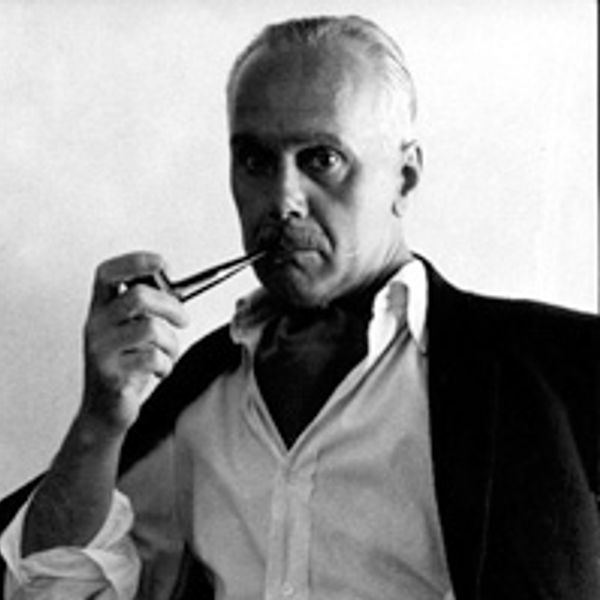Lia Purpura, Parasol Mushroom (detail), featured in AGNI 102
The Family
Remember, do you still remember the scene
Where you appeared patiently day after day
In childhood, as far away as a dream at dawn?
The heavy silence, the drapes drawn shut,
The circle of light above the tablecloth,
Solemn as an altar, and seated around the table
The family council, a song sung by so many,
Even though you, with your hard head, never have.
At the head of the table the austere father,
Impulsive mother at the other end,
With the impossible and unhappy elder sister,
And the younger, sweeter one, perhaps no happier,
The household rounded out by you,
The family home, the human nest,
Thin and brittle as glass,
Which everyone breaks but no one bends.
Serious, silent, in a kind of twilight,
No one’s eyes met anyone else’s eyes,
While their pale hands lifted like the Host
A piece of bread, of fruit, a glass of water,
And though they were still alive you sensed in them,
Behind the well dressed flesh, the haunted pain
That all the prayers in the world could never relieve
The bitterness of having lived for nothing.
It wasn’t your fault you had been created
In an ordinary moment of forgetting
By parents merely going through the motions
Inherited from others, with no passion,
Whose purpose and implications they never thought of.
Nor was it your fault you couldn’t understand them:
At least you had the courage to be honest
Both with them and with yourself.
What they proposed, like everyone else, was something
Lasting, what they had accomplished, though all around
They could see nothing lasts, nor is accomplished,
That nothing was theirs, not even that sip of water
Cooling their throats in summer,
Nor the flames warming their hands in winter,
Nor even the body joining in desire
Two solitudes in a single flesh.
They told you everything, how as a helpless baby
They gave you milk and swaddled you in warmth;
Later, when you grew into your own soul,
They provided you with morals and with God,
And sometimes it pleased you to arouse yourself
And prove your tender strength could break their laws.
They gave you everything, a life you never asked for
And with it death as a hard companion.
But there was something else, trapped
Inside you like a fox in a dark cave,
They never gave you, and that is what you are:
The strength of solitude, believing yourself alive,
Earning your own truth with your mistakes.
Water springs up like that and finds its way,
Free of the servitude of turning mills,
Downstream toward the sea, its destination.
That love of theirs imprisoned you
Like a suit of clothes measured for someone else,
And that generosity that tried to buy
Your obedience in a way
Your soul could not consent to.
And so you learned to hate the love that doesn’t
Know how to burn unknown with no reward.
Time went by, undoing them
Like bubbles on the surface of a stream,
Dismantling the poor tyranny they’d built,
And leaving you free at last, alone with your life,
Like all the others with neither home nor kin,
Masters of their own oblivion.
Then when you had rapturously discovered
The way their customs are imposed on others
And how whoever breaks the rules is excommunicated,
You agreed with them, smiling through your pain.
How man deceives himself and how in vain
He makes laws that prohibit and condemn.
Is every human act, as you now believe,
No more than unthinking imitation?
For this strange flame now trembling in your hands,
Which you desire and fear will go out someday,
Come down to you as an inheritance
Of useless human experience, a shaky business
Toiling for good and ill without any meaning,
The gates of hell will not prevail
Over you nor your works of flesh and blood,
Oh taciturn father you never really knew,
Oh melancholy mother you never understood.
Don’t let your memory trouble with remorse
Those distant shades now drifting out there
In the farthest reaches of nothingness.
May this ghostly conclave you’ve conjured up
With your own blood like some magical drink
To make those lost ones visible for a moment
Bring peace and forgiveness to you all.

Luis Cernuda
Luis Cernuda (1902–1963), one of Spain’s leading twentieth-century poets, was born in Seville, came of age in Madrid among the cohort of poets known as the Generation of 1927, left the country during the civil war in 1937, and spent the rest of his life in exile, first in Great Britain, then in New England (he taught at Mount Holyoke from 1947 to 1951), and finally in Mexico, where he died in 1963. His books in English include Selected Poems, translated by Reginald Gibbons (Sheep Meadow Press); collected prose poems, Written in Water, translated by Stephen Kessler (City Lights); and last poems, Desolation of the Chimera, translated by Stephen Kessler (White Pine Press). “The Family” is from Reality and Desire, new selected poems, forthcoming in 2015 from Black Widow Press.

Stephen Kessler
Stephen Kessler is a poet, prose writer, translator, and editor. His version of Luis Cernuda’s Desolation of the Chimera received the Harold Morton Landon Translation Award from the Academy of American Poets, and his translation of Cernuda’s collected prose poems, Written in Water, received a Lambda Literary Award. He is the editor and principal translator of The Sonnets by Jorge Luis Borges (Penguin). His most recent translation is Poems of Consummation by Vicente Aleixandre (Black Widow Press), and his latest book of original poems is Scratch Pegasus (Swan Scythe Press). He lives in Northern California, where he edits The Redwood Coast Review. (updated 4/2014)
Kessler’s translation of Luis Cernuda’s Forbidden Pleasures: New Selected Poems (Black Widow Press) won the 2016 PEN Center USA Translation Award. The collection includes “The Family,” first published in AGNI 79.
